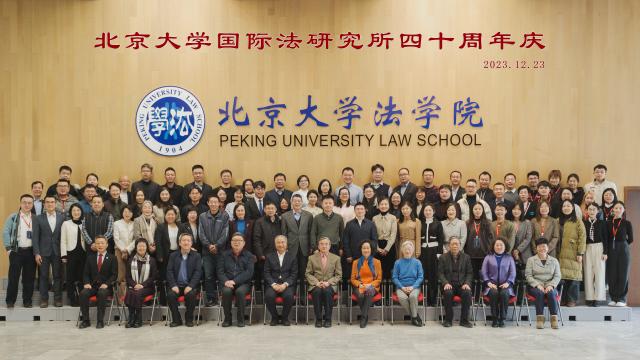You are here: Home»
External Relations»
Newsletter»
Faculty Scholarship Highlights
Faculty Scholarship Highlights
Date:2024-01-02
Our faculty boasts the nation’s top legal thinkers and experts who engage in innovative and challenging research projects on a wide range of important law and policy topics. Their research excellence and achievements have continued to become recognized nationwide and abroad.
1.Twoprofessors’ work awarded by the 9th Qian Duan-sheng Award for Legal Scholarship Achievements
Professor Jiang Mingan’s monograph, Rule of Law with Chinese Characteristics in the New Era (Law Press, 2018), won the Third Prize. Associate Professor Peng Chun’s English monograph, Rural Land Takings Law in Modern China: Origin and Evolution (Cambridge University Press, 2018), won the Second Prize.
The Qian Duan-sheng Award for Legal Scholarship Achievements was established in 2006, sponsored by China University of Political Science and Law and was established in the name of the famous Chinese contemporary jurist, Qian Duan-sheng. The award is set to commemorate Qian Duansheng’s significant contribution to Chinese legal research and to promote the construction and high-quality development of rule of law in China. It is now one of the most authoritative awards in the field of law in China to recognize outstanding legal research.
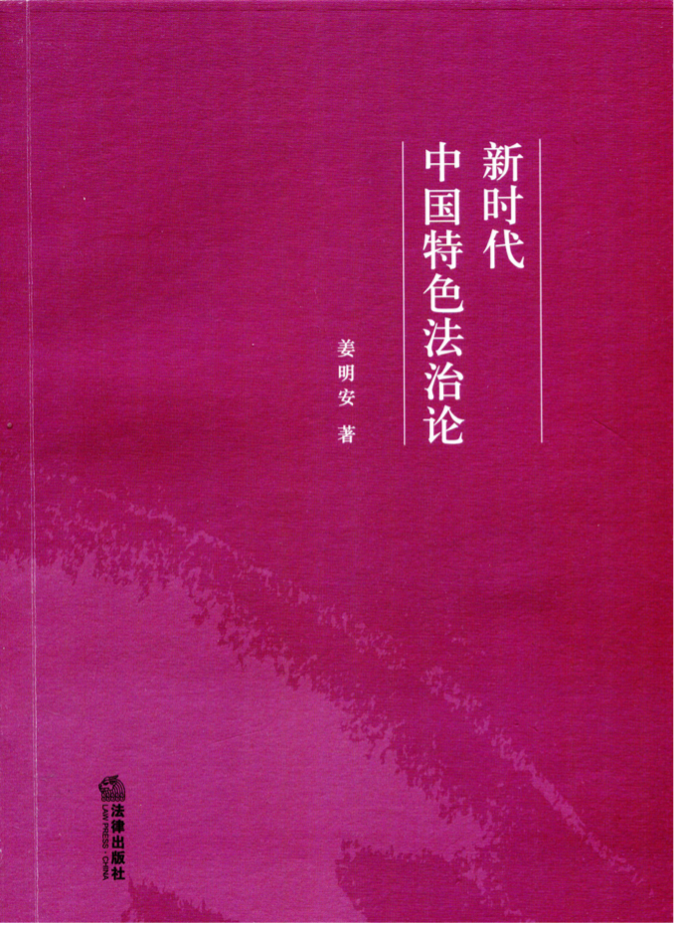
Rule of Law with Chinese Characteristics in the New Era (Law Press, 2018) collects Professor Jiang’s 71 articles (2012-2017) on theories and practices of the construction of Chinese rule of law. The articles are categorized into six series,namely “theories of rule of law with Chinese characteristics”, “constitutional order with Chinese characteristics”, “construction of a government under the rule of law with Chinese characteristics”, “construction of a society under the rule of law with Chinese characteristics”, “anti-corruption and procedural justice with Chinese characteristics” and “legal supervision and remedy system with Chinese characteristics”.
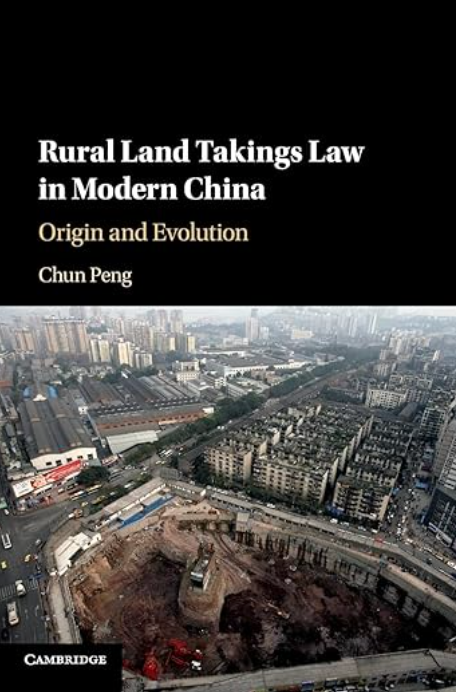
Rural Land Takings Law in Modern China: Origin and Evolution (Cambridge University Press, 2018) by Associate Professor Peng Chun is a book that tracks the origin and evolution of China's rural land takings law over the twentieth century and demonstrates an enduring tradition of land takings for state-led social transformation. The book also provides a piercing analysis of how land has been used by China in the world to develop itself, at what costs and where the future might be.
2. Dr. Chen Xiaohang won 2023 Antonio Cassese Prize
Dr. Chen Xiaohang, postdoctoral researcher at PKU Law School, won the 2023 Antonio Cassese Prize for the Best European University Institute (EUI) Doctoral Thesis in International Law for his dissertation, The Imagination of Alternatives: The History of International Arbitration in the Late Nineteenth Century 1863-1888 . With the use of archives and manuscripts, the thesis, adopting interdisciplinary method, which combines international law and history, mainly discusses the historical process of how international arbitration has gradually transformed into a mature series of international conflict resolution mechanism in the late 19th century. Chen started his postdoctoral research in PKU Law in June 2022.
For full text, please click https://cadmus.eui.eu/handle/1814/74307
3. Two professors awarded by the 5th Outstanding Achievement Award in China Legal Studies
Professor Guo Li’s monograph, The Regulation of Sovereign Wealth Funds and Their Evolving Response and Governance Reform—China Investment Corporation and Beyond (Peking University Press, 2019), won the First Prize. Professor Chen Ruihua’s article, Compliance Incentive Models in Criminal Procedure, won the third prize.
The Outstanding Achievement Award in China Legal Studies is the highest level government-funded research award managed by the China Law Society..
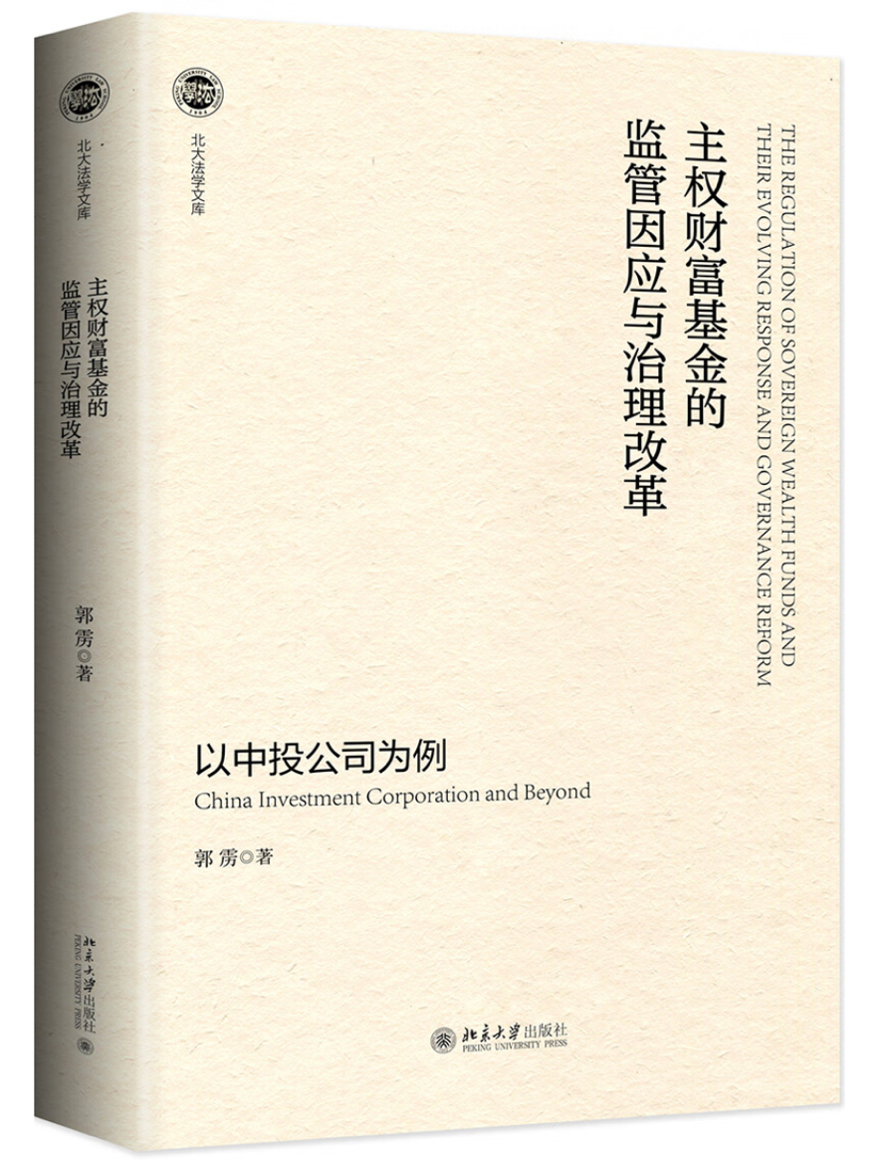
Professor Guo’s monograph, The Regulation of Sovereign Wealth Funds and Their Evolving Response and Governance Reform—China Investment Corporation and Beyond, was published by Peking University Press in 2019 and is selected into the PKU Law Series. The book examines the increasingly prosperous field of sovereign wealth funds and explores mechanisms for promoting global coordinative governance through the construction of new “international rule of law”.
Guo studies the legal issues that affect sovereign wealth fund operation mainly from two perspectives. One is the host country’s regulatory posture on sovereign wealth funds. The book overviews the policy adjustments and its influences in developed countries, as well as discussing the main sovereign wealth funds’ reactions. The other is how the sovereign wealth funds can reform to perfect governance structure and improve governance quality. The author explains the distinctive features of sovereign wealth funds when acting as investors under market economy, analyzing the challenges it brings to companies’ current legal structures and global investment climate, also proposing suggestions for China Investment Corporation’s operation and development.
Professor Chen’s article is published on China Legal Science, Issue 6, 2020.
As a new type of corporate management, corporate compliance aims to avoid compliance risks and prevent, monitor and remedy illegal and criminal activities. However, it is meaningless for a company to establish a compliance system on paper merely. The effectiveness of this management relies on its associated administrative and criminal incentive mechanism. Setting the rules of leniency for compliance in criminal law can urge enterprises suspected of committing crimes to implement compliance programs. For enterprises that have promised to establish or improve a compliance management system, the procuratorates set a supervision period and decide whether to prosecute them based on the effectiveness of their compliance system. More and more countries have established this rule. So far, the United States has established deferred prosecution and non-prosecution systems, while the United Kingdom, France, Australia, Canada, Singapore and other countries have imitated the United States and established the deferred prosecution system.
For full text, please click https://link.springer.com/chapter/10.1007/978-981-19-3651-7_11
4. Professor Wang Jin’s team contributes to the legislation of Eco-environmental protection of Qinghai-Tibet Plateau.
The second draft of Qinghai–Tibet Plateau Ecological Conservation Law came into effect on Sept 1, 2023. In the process of making it, Professor Wang led his team to provide mono-graphic research report on the law’s legal liability part, providing significant technical support and professional reference for the legislation of Qinghai-Tibet Plateau Ecological Conservation Law.
To know more about Qinghai-Tibet Plateau Ecological Conservation Law, please click https://npcobserver.com/legislation/qinghai-tibet-plateau-ecological-conservation-law/
5. Three professors’ works selected for the Chinese Academic Translation Project by the National Social Science Foundation
Professor Zhu Suli’s two widely acclaimed monographs will become translated into more foreign languages. Rule of Law and Its Local Resources will be translated into Korean. Law and Literature: Taking Chinese Traditional Drama as Material will be translated into English and German. Associate Professor Zhang Yongle’s work, Shifting boundaries: A Global History of the Monroe Doctrine will be translated into English. The translated versions of the selected works will be published through foreign authoritative organizations. Previously, several works of Professor Luo Haocai, Zhu Suli, Chen Xingliang and Zhang Shouwen have been published to the international academic circles through this project.
The Chinese Academic Translation Project is part of the National Social Science Foundation Programs. It funds the translation of top Chinese scholarships in humanities and social sciences into foreign languages, with a view to facilitating the access to Chinese top scholarships by the international scholarly community.


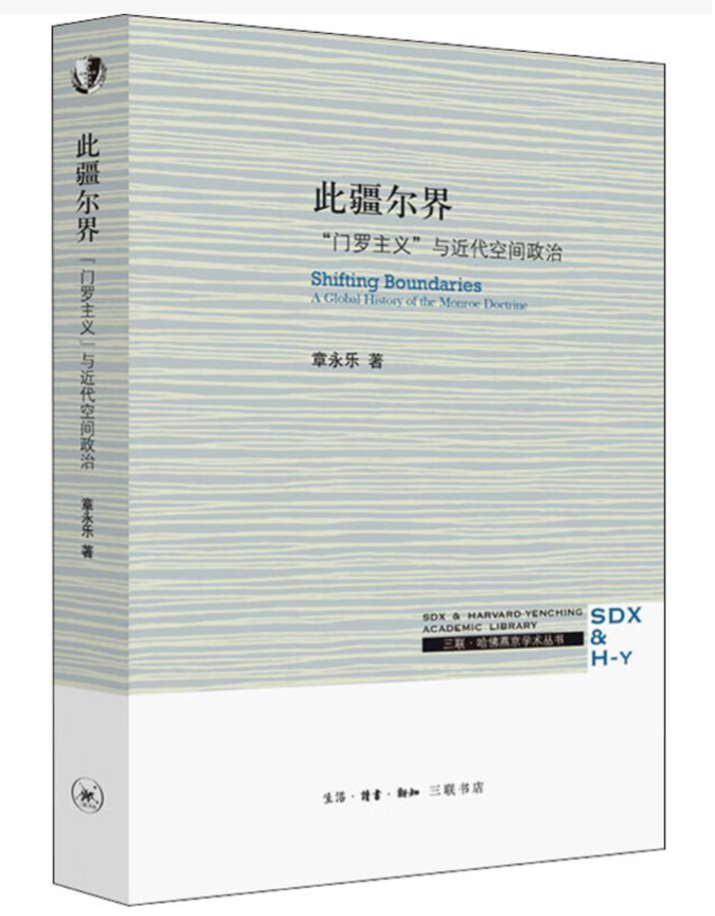
6. Celebrating 30 years of intellectual property innovation at Peking University
Marking a significant milestone, Peking University’s Institute of Intellectual Property (IIP) hosted a series of events on May 21, 2023 to celebrate its 30th anniversary. The day commenced with the "Seminar on Celebrating 30th Anniversary of the Establishment of IIP and the Great Order Forum: Legal Insights on the Cutting-edge Science and Technology of Global Internet." Distinguished speakers included Duan Ruichun (President, China Law Association on Science and Technology), Wu Handong (former Headmaster, Zhongnan University of Economics and Law), Zhu Li (Vice President, Intellectual Property Court of Supreme People's Court), and representatives from legal academia, industry, and international organizations.
In parallel, a forum in Guangzhou delved deeper into specific themes: talent development in the Greater Bay Area, cutting-edge internet IP trends, and IP utilization and legal protection. Renowned experts and practitioners shared their insights, fostering a dynamic dialogue on the future of intellectual property.
This celebratory series not only marked IIP's remarkable three decades of contributions but also served as a springboard for continued innovation and collaboration in the ever-evolving landscape of intellectual property.
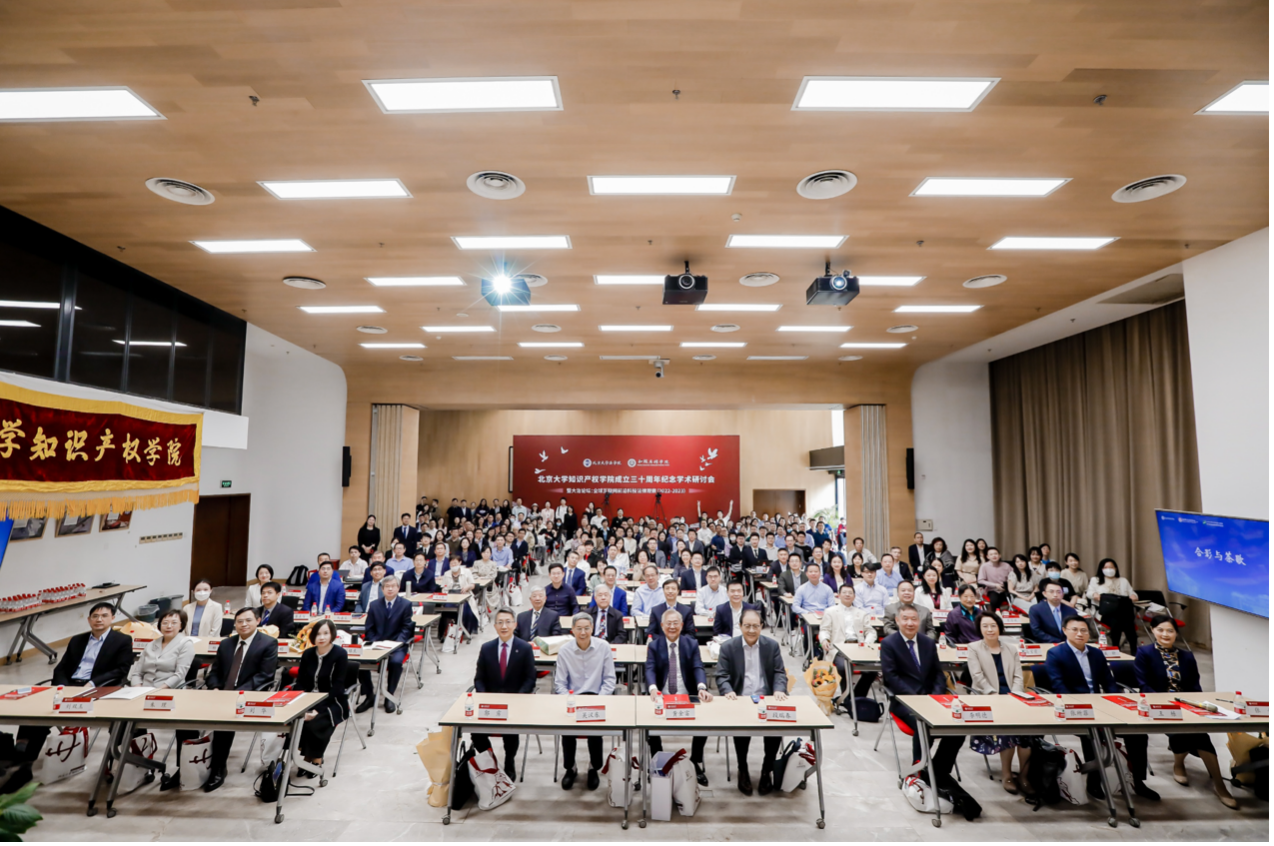
7. 40th Anniversary of the Founding of the Peking University International Law Institute
The 40th Anniversary of the Founding of the Peking University International Law Institute celebration was held at Peking University on the 23rd of December. The celebration was hosted under the theme of ‘Walking with Reform and Opening Up’, for the institute was the first specialized institution to engage in international law research established after China's reform and opening up.
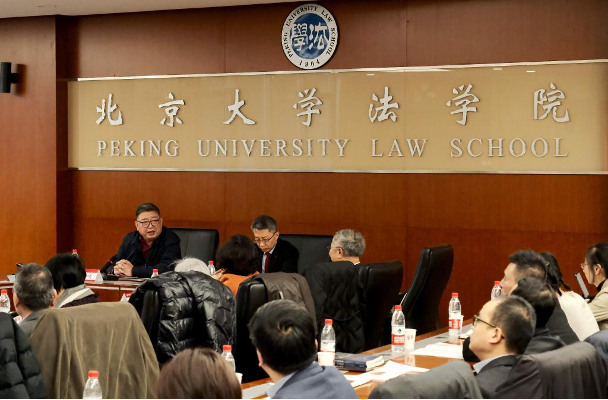
More than 100 alumni, current teachers and students gathered together to discuss the research and education practices of the Peking University Institute of International Law. Experts and scholars from universities and research institutions such as Peking University, China University of Political Science and Law, Beijing Normal University, Beijing Foreign Studies University, Dalian Maritime University, Inner Mongolia University, etc., attended the celebration and joined panel discussions. Three panels were organized: ' Peking University International Law Institute and Chinese Approach to International Law’, ‘Theory and History of International Law’ and ‘New Fields, New Developments of International Law and China's International Discourse’.
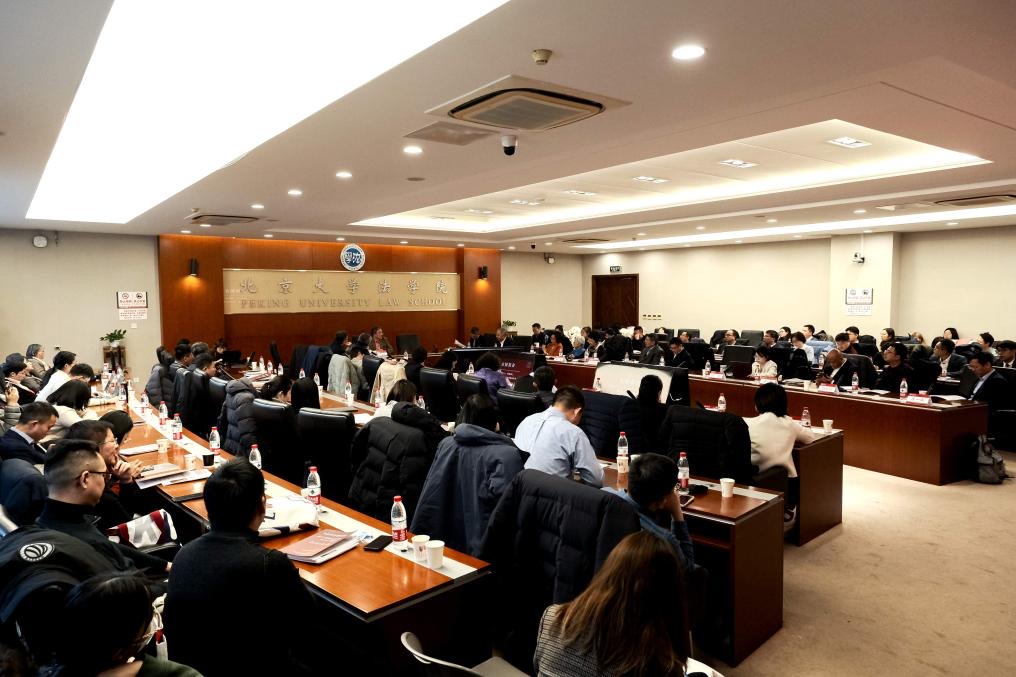
Peking University Institute of International Law is an academic institution developed on the basis of the International Law Teaching and Research Section of the Department of Law of Peking University (now the Law School). It was established in 1983 with the approval of the Ministry of Education. The founding director is Professor Wang Tieyea.
